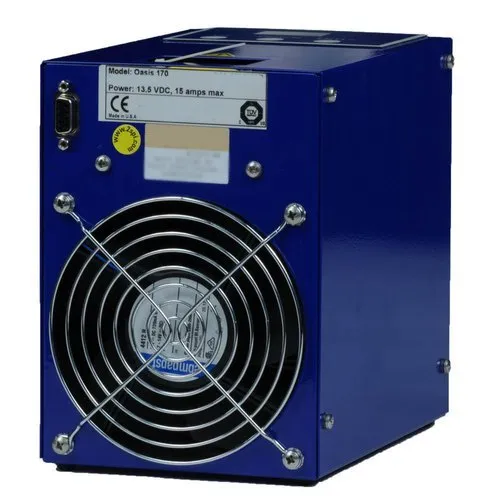Introduction
Ultra-compact chillers—state-of-the-art cooling systems designed to deliver exceptional performance in a compact form factor. These chillers combine advanced engineering with innovative technologies to provide reliable temperature control, energy efficiency, and versatility. Whether it’s for precision applications like laser cooling, medical equipment, or small-scale manufacturing, ultra-compact chillers are redefining the possibilities of modern cooling systems.
More than just space savers, ultra-compact chillers embody the future of sustainable and adaptable cooling. They cater to industries where precision, portability, and eco-friendly solutions are essential. With their growing adoption, these chillers are shaping a new standard for cooling technology that meets the challenges of today while paving the way for tomorrow.
Key Features of Ultra-Compact Chillers
- Space-Saving Design
Ultra-compact chillers are engineered to minimize space usage without compromising on performance. These chillers are ideal for environments where every inch of space counts, such as laboratories, small manufacturing units, and mobile applications. By consolidating components into a streamlined layout, they reduce clutter and improve accessibility, making them perfect for retrofitting into existing systems. - High Performance in a Small Package
Despite their reduced size, ultra-compact chillers deliver robust cooling capabilities. Equipped with high-efficiency compressors and advanced heat exchangers (e.g., microchannel or plate designs), these chillers can handle high thermal loads while maintaining energy efficiency. Their compact design doesn’t mean a compromise on power—modern ultra-compact chillers are often designed for critical applications requiring consistent and reliable cooling. - Plug-and-Play Convenience
The modular nature of these chillers simplifies installation and operation. Pre-configured setups and standardized connections allow users to integrate them quickly into their systems. Maintenance is equally convenient, with easy access to components for cleaning and repairs. This plug-and-play approach reduces installation time and operational downtime, especially critical in industries that demand continuous cooling. - Energy Efficiency
Many ultra-compact chillers come equipped with energy-saving technologies such as variable-speed drives, which adjust cooling capacity to match real-time demand. Additionally, they often use eco-friendly refrigerants with low global warming potential (GWP), aligning with stringent environmental standards. This dual focus on energy efficiency and sustainability reduces operational costs while contributing to environmental protection. - Versatile Applications
Ultra-compact chillers are highly adaptable, making them suitable for a range of industries:- Medical Equipment Cooling: They maintain precise temperatures for sensitive devices like MRI machines, CT scanners, and lab analyzers.
- Industrial Processes: From cooling injection molding machines to chemical reactors, they support small-scale manufacturing setups.
- Laser Systems: Their reliability ensures uninterrupted cooling for fiber, diode, and CO2 lasers, critical for precision tasks in engraving or cutting.
- Food and Beverage: Perfect for small-scale brewing, dairy processing, or beverage cooling operations, where consistent temperature control is key.
- Enhanced Portability
Designed with mobility in mind, many ultra-compact chillers come with caster wheels and lightweight frames, allowing them to be easily relocated. This feature is particularly valuable in dynamic environments where cooling needs may shift frequently, such as event spaces, temporary labs, or pilot manufacturing setups.
Innovations Driving Ultra-Compact Chillers
- Advanced Microcontrollers
Modern chillers are equipped with sophisticated control systems that offer real-time monitoring and precise temperature regulation. These controllers ensure the system operates at peak efficiency while providing alerts for any deviations, helping to prevent equipment failure and extend the chiller’s lifespan. - Smart Connectivity
Internet of Things (IoT) integration allows remote monitoring, diagnostics, and control. This connectivity ensures quick response to issues, predictive maintenance, and enhanced operational flexibility. Operators can adjust settings or check performance from anywhere, ensuring uptime even in remote installations. - Hybrid Cooling Systems
Some ultra-compact chillers combine air-cooled and liquid-cooled technologies. This hybrid approach offers flexibility to adapt to changing environmental conditions or application-specific requirements, ensuring consistent performance regardless of external temperatures.
Industries Benefiting from Ultra-Compact Chillers
- Medical Sector
Ultra-compact chillers are crucial in healthcare for maintaining the operational integrity of expensive equipment. They provide precise and stable cooling to medical imaging systems, ensuring accurate diagnostics and extending the life of the machines. - Electronics Manufacturing
Electronics are sensitive to heat, and these chillers ensure controlled temperatures during processes like soldering, PCB manufacturing, and component testing. Their compact size makes them easy to integrate into production lines. - Laser Systems
Cooling requirements for lasers are specific and demanding. Ultra-compact chillers maintain steady temperatures, ensuring that lasers operate at peak efficiency and prevent overheating during critical applications like cutting, engraving, or surgery. - Food & Beverage Industry
For small-scale operations like boutique breweries, ice cream production, or artisanal beverage packaging, ultra-compact chillers offer precise cooling in limited spaces, ensuring product quality and consistency.
Why Choose Ultra-Compact Chillers?
Ultra-compact chiller strike a perfect balance between efficiency, reliability, and adaptability. Their minimal footprint allows them to fit into challenging spaces while delivering top-tier performance. With a growing focus on energy efficiency and sustainability, these chillers cater to modern industrial and environmental demands.
Choosing an ultra-compact chiller means investing in technology that optimizes space, reduces operational costs, and ensures high performance across various applications. As industries continue to innovate and scale down their setups, these chillers remain a cornerstone of modern cooling solutions.
Conclusion
Ultra-compact chiller are more than just a technological advancement—they are a strategic solution to the challenges of modern cooling. By offering powerful performance in a small footprint, they enable businesses to optimize their operations in constrained spaces without compromising on efficiency or reliability. These systems are designed to align with global trends in sustainability, incorporating energy-efficient components, eco-friendly refrigerants, and IoT-enabled smart features.
For industries striving to stay competitive, ultra-compact chiller deliver more than just cooling—they provide a seamless blend of performance, convenience, and adaptability. Whether you’re looking to enhance productivity, lower energy costs, or reduce your environmental impact, these chillers offer a forward-thinking approach to modern cooling needs.

